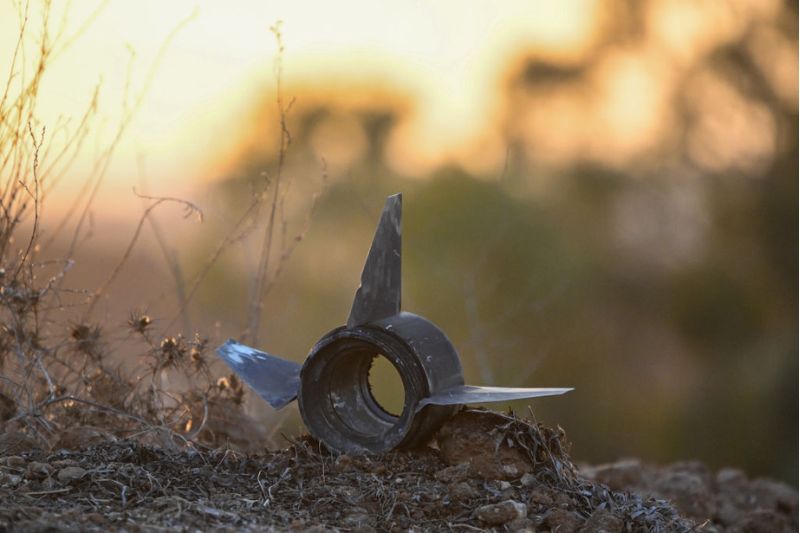Disarmament Week usually comes and goes unnoticed. It is seen as a nice idea that is impractical in the real world. This year, however, it is more likely to be dismissed as an absurd idea. The conflict between Israel and Hamas will be decided on the ground by the cache of weapons they have accumulated. The response of their allies has already been to make more and more sophisticated weapons available to them.

Meanwhile, arms manufacturers cannot keep up with the demand to sustain the war in Ukraine, to support other military operations, and to serve a host of geopolitical ends. In a time of financial stringency Australia has committed itself to enormous expense to provide nuclear submarines. Wars themselves are becoming more lethal with the development of drones and other weapons.
As international and national politics become more polarised and violent in tone national leaders increasingly see it as reasonable and even obligatory to compete with other nations in seeking access to more destructive weapons with which to defend the nation. It is commonsense to believe that only if you are armed to the teeth will you be safe from attack and will peace be promoted.
And yet, as so often in human affairs, the cloak of commonsense proves to be motheaten when more closely examined. There are two main reasons for this. First, when nations stockpile weapons powerful and numerous enough to destroy human life in the world many times over, the destructive power of the weapons becomes taken for granted. People cease to be shocked by it. As a result, the risk of a paranoid or reckless leader using them without regard to the consequences grows higher rather than diminishes. In such an event it is also more likely that other nations will respond by using their own weapons.
Even if nations are deterred by others’ possession of nuclear weapons, other weapons are powerful enough to destroy cities and to drive peoples into exile. Neither the possession of nuclear weapons by Russia and the allies of Ukraine prevented Russia from invading Ukraine and Ukraine from resisting the invasion at the cost of so many soldiers’ and civilians’ lives and of the nation’s economy. Because conventional weapons and drones are now seen as normal, the wholesale destruction of civilised life is also taken for granted.
The dangers of a world in which peace depends on nations matching one another in the destructive power of their weapons are evident in current international conflicts. In Ukraine Mr Putin threatens to withdraw from treaties based to limit the spread and use of nuclear weapons. Strategists, too, talk openly about how Ukraine’s allies should respond if they are used. North Korea also possesses nuclear weapons and leans on their possession for their security. The rivalry between China and the United States, both nuclear powers, too, risks descending into open conflict in which Australia could be involved.
'Non-violence must take root in our most intimate relationships if it’s to flower in our global relationships. Disarmament Week may seem to be an absurdity. Armament, however, is surely a lunacy.'
Second, the rush to amass more and more expensive weapons ignores the opportunities to shape a better world which are lost by spending heavily on arms. The money could have been allocated to public transport, hospitals, schools, care for the ageing, more generous benefits and social housing, for example. Instead, the profits from arms sales, often magnified by lax oversight from Government Departments, go to large corporations and contribute to inequality. The expenditure on arms then becomes self-reinforcing and further impedes the ability and willingness of governments to fund just social programs. In nations which allow encourage large munitions firms weapon making becomes a significant part of the economy. Disarmament is then seen as a threat to employment.
This diversion of resources to the manufacture and use of ever more destructive weapons is now a critical threat to the survival of the world as we know it. It directly threatens global warming through the emissions generated in the manufacture and use of weapons. More important, it diverts focus from the imminent danger of climate change and from the urgent need to restructure economies, transport and manufacturing in order to prevent emissions rising above their already damaging levels. In making the weapons and fighting the wars we deem necessary to preserve a world worth living in, we shall surely destroy it.
The irrationality of an arms race based on a balance of terror and the terrible suffering caused by modern wars have led Pope Francis, like his predecessors, to condemn the arms trade and the reliance by Governments on weapons of mass destruction. He also points out the connection between personal conversion and international disarmament. If nations store up weapons out of fear, they may reflect personal relationships marked by fear, defensiveness and retaliation. Non-violence must take root in our most intimate relationships if it’s to flower in our global relationships. Disarmament Week may seem to be an absurdity. Armament, however, is surely a lunacy.
Andrew Hamilton is consulting editor of Eureka Street, and writer at Jesuit Social Services.
Main image: A piece of a man made rocket, that has welding marks on it, is seen on the edge of a cliff on October 15, 2023 in Sderot, Israel. (Alexi J. Rosenfeld/Getty Images)